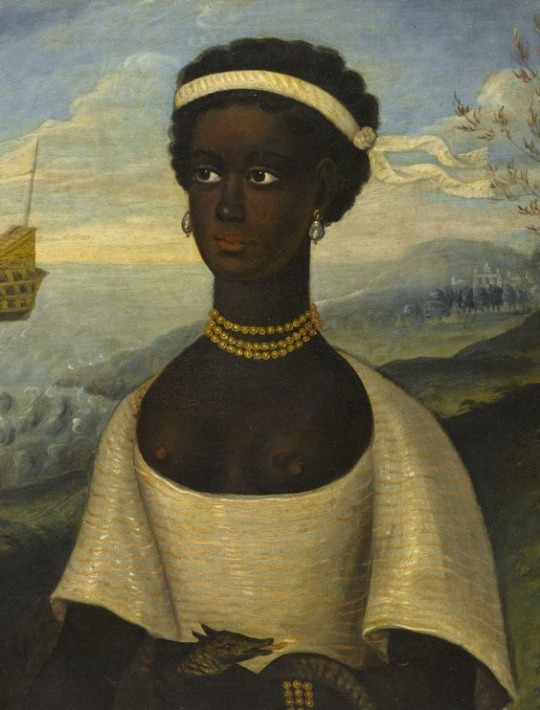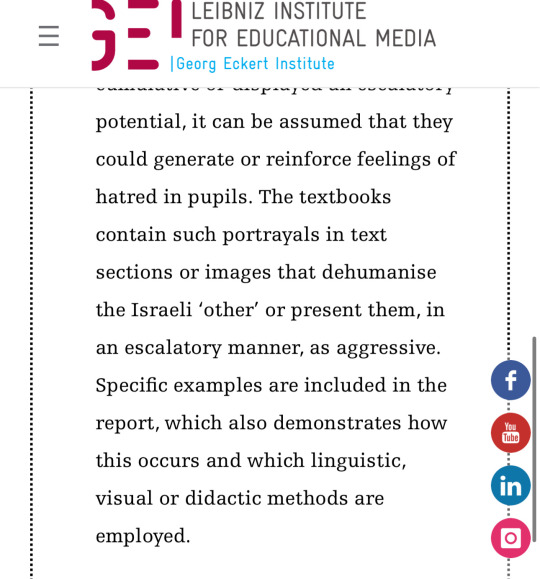#women: a journal of liberation
Explore tagged Tumblr posts
Text


photos by J.E.B. • from Women: A Journal of Liberation, vol. 5 no. 2 (January 1974)
#the link goes to Jstor where many editions of this publication are available for download for free :)#i was lucky enough to get to flip thru this one in person on the land#⚢#women: a journal of liberation#j.e.b.#joan e. biren#1970s#women's land#lesbian herstory#photography#pdf
77 notes
·
View notes
Text
No Pride for Some of Us Without Liberation for All of Us
#Micah Bazant#I feel like quotes today#so quotes you will get#Queer#Punk#Pride#Queer Liberation#Queer Rights#Feminism#Women's Rights#Free Palestine#Free Gaza#Free Sudan#BLM#Stop Asian Hate#Disability Rights#Human Rights#Social Justice#Politics#Journalism#Activism
21 notes
·
View notes
Text
Lock In, Friends. We're the Resistance Now.
Things in the American left wing have been pretty gloomy this week. Lots of retrospectives, lots of “I told you so,” lots of doomy predictions.
I share the feeling. I understand it. It’s gutting to experience such a decisive defeat from a party who claims that caring for people is too expensive, but "there's no price tag” on harming them. We would have to sociopaths to not be upset about that.
However, I think we need to be mindful of how our emotions frame our reality.
I don’t think it’s particularly wise for us to invest too much energy into the news cycle. It only serves to exhaust and demoralize people by overwhelming them with a tsunami of problems. The sum total of the threats feels insurmountable, and so we throw up our hands and accept that the end is nigh.
I understand the camp of people who are willing to sit back and accept the suffering as long as the Y’all Qaeda suffers too.
We all feel frustrated and resentful, because in the course of fighting for freedom, leftists and liberals inevitably end up fighting for the rights of people who do not appreciate it, will not help defend it from future infringement, and are actively voting against it. And that fucking sucks.
But throwing up our hands and watching the world burn does mean that we will burn too, and I don’t know about you, but I like my flesh un-scorched.
Therefore, before all else, we must be willing to block out the noise. We must stop giving our attention to a mass media who are cosigning our destruction, and focus our attention on tangible, achievable, local action. We must ask ourselves, “What cause truly matters do me? What cause do I care for more than my comfort or safety?”
Some people will answer, “None,” and that’s okay. They would be poor allies anyhow. We let them go in peace.
For the rest of us, the people who care even in foul weather and terrible odds, we must gather ourselves around the campfires of those heartfelt causes. We must make close bonds with our true allies, and devise plans for how we can draw a line in the sand of our values and say, “No more. You will not take away our healthcare/our mutual aid/our ability to protest and exercise free speech/our right to exist and love who we do.”
It will feel alien to those of use who are accustomed to paying attention to everything. It will feel like we are letting our neighbors and their causes down. But we are not, we are actually helping them a great deal by ensuring that our campfire does not spread uncontained about the woods.
[Read and subscribe on Substack]
or continue reading below.
Because we are focusing on our fire, they can ignore it and invest that extra energy the spent watching our fire to defend their fire better. And we, likewise, can pay less attention to them and trust that they will handle it.
Which leads quite nicely into my second point with this letter; in our ongoing fight for freedom, the preservation of hope and our spirit must be the absolute first priority.
They have been working tirelessly for nearly a decade to break our spirits and push us into apathy. They are closer to succeeding now than they have been for a long time. The antidote to this psychic damage is psychic healing. We must take care of our own.
If you are holding a door closed against an intruder, you won’t last long with a broken ankle. You won’t be able to plant your feet if your socks are sweaty and the soles of your shoes have no traction. You would also fair much better with a friend who is also pushing.
People in our lives are hurting, and so we have to help them heal.
It sounds daunting when we’re all feeling so tired and wrung-out, when we feel deep in our hearts that this country deserves to go to the dogs. We think, “how could I possible support someone else when I’m barely staying on my feet already?”
There is some truth to that. That’s why I’m moving to a blue state. That’s why I’m cutting off people who I don’t think I can reach.
Put your gas mask on before assisting others. It’s common sense.
But at the same time, don’t take it for granted that helping drains you of energy.
Certain people are quite draining, and certain types of help can require a lot of energy, but we don’t have to do that kind of help all the time.
When you are feeling worn out, a hug can be a revolutionary act. A night of karaoke with friends. A cup of tea, an empowering conversation, one-line text message welfare checks—these are revolutionary acts, because they keep people motivated. They remind them that life continues even under oppression.
We lost the election, but the battle for our souls is still being fought. The legislature doesn’t determine how our movement goes forward. No candidates or conventions dictate how we gather and speak and coordinate.
Are we headed to another civil rights movement, where signs and song and massive, multi-cultural coalitions stand together and tell the government where they can stick it?
Or are we headed for a slow, self-defeating whimper that rolls effortlessly into an interminable era of rigged elections, single-party politics, and dissidents being disappeared from the streets in broad daylight?
Donald Trump doesn’t get to choose, and neither does Elon Musk.
We don't control the game or the rules, but we do get to decide if we're even going to try and win or if we'll just forfeit at the start.
It’s in our hands.
And we will absolutely surrender that choice if we give too much quarter to grief and anger. We will kneecap our own chances for freedom if we neglect our collective well-being and give our energy to the vampires on both sides of the punditry.
I believe the thought leaders on the left are well-meaning. I believe our bickering and pontificating flow naturally from our identities as intellectuals and humanitarians, and I think it’s important for us to have those conversations. But we need to have them at the right time, and we need to have them after we’ve patched up our wounded and put on fresh socks and tied our shoelaces good and tight.
We need to take care of our own and give them little bits of love to cling to, to remember the world we’re fighting for—a world where everyone is equal, everyone is whole, everyone is cared for and sheltered and connected to a community.
We have to give people a taste of the world they deserve, and it’s not even that hard to do because it turns out that when we make a space of healing for our community, that space heals us too.
In the face of oppression, survival is an act of rebellion. Gather your people close and ask them how you can help. When they tell you, take their answer seriously and do what you can to improve their situation. When you need support, don’t be proud. Go to your people and tell them.
Human beings are categorically shitty at imagining better times when their thoughts are steeped in depression and despair. In order to have any chance of a better future, we need good, hopeful ideas. Therefore, now and in the future, our first impulse should always be to care for our people. Nothing good can happen until our minds are free of our demons.
So go out today and find yourself some peace. Find relief, or get as close as you can. And when you’ve had enough relief to feel angry, to feel fired up and pissed off and impatient to take on the Horrors, channel that feeling into giving someone you love peace and relief.
And for fuck’s sake, turn off your phone notifications. You don’t need that shit activating your amygdala 24 hours a day. Check once in the evening so you’re informed, and then run far away. You’ll better off, and you’ll have more energy to improve the world around you.
The enemy is apathy. Don’t be an easy mark.
Let's all get our heads straight, and find the dim spark within us that still hungers for a better future.
The Horrors persist, but so do we.
I’ll see you tomorrow.
Den
#us politics#leftism#liberalism#civil resistance#newsletter#women writers#queer writers#journaling#civil rights
8 notes
·
View notes
Text
A journal entry_Nov 13 2023

Alas, the year has gone by and I am spent. Another year sitting in painful servitude to that which is required of me by systems I scorn. Systems not only appalling to my personal sensibilities but also taking first place in the 6-century race to be the bane of my people’s existence. 200 years of deceit and domination, followed by 100 of enslavement and the ‘conquering’ of my people which btw is not possible lest there is a fight, the former is simply called a brutish inhuman massacre. Then we got 200 sordid years of brutal conditions, forced labor, and fucking eugenics. The last century has then been filled with a generally declining social condition worldwide. I ache for my people. I pray god for recompense.
#journal#black liberation#exhaustion#alienation#marx#marxism#havewediedfornothing#politics#communism#reparations#african people#prose#black tumblr#black women#black intellectual
2 notes
·
View notes
Text
Sex and Power: Sexual Bases of Radical Feminism
Not even the most ardent feminist can claim to be "liberated" in a sexist society. "Sexual liberation" can mean nothing unless it includes the freedom to reject or enter into sexual relationships fearing neither exploitation nor punishment. But sexual exploitation and punishment still threaten every woman. The denial of complete reproductive freedom, the total responsibility for child rearing, the psychological intimidation of rape victims are all punishments for the sexually active woman. The threat of job loss, ridicule, rejection, isolation, and even rape are punishments threatening the woman who refuses sex.
—Alix Kates Shulman, Women: Sex and Sexuality.
#alix kates shulman#Signs: Journal of Women in Culture and Society#radical feminism#women's liberation#radblr#feminism#radfem#sex and power
5 notes
·
View notes
Text
Employers desire foreign workers who are accustomed to the hazardous work sites of industrial construction; in particular, they specifically solicit migrants who do not have a history of labor organizing within SWANA. In response, labor brokerage firms brand themselves as offering migrant workers who are deferential. Often, labor brokers conflate the category of South Asian with docility; [...] as inherently passive, disciplined, and, most important, unfettered by volatile working conditions. "We say quality, they [U.S. employers] say seasoned. We both know what it means. Workers who are not going to quit, not going to run away in the foreign country and do as they are told.” [...]
For migrants, the U.S. oil industry presents a rare chance to apply their existing skill set in a country with options for permanent residency and sponsorship of family members. Migrants wish to find an end to their temporary worker status; they imagine the United States as a liberal economy in which labor standards are enforced and there are opportunities for citizenship and building a life for their family. [...] What brokers fail to explain is that South Asian migrants are being recruited as guest workers. Migrants will not have access to U.S. citizenship or visas for family members; in fact, their employment status will be quite similar to their SWANA migration.
While nations such as the Philippines have both state-mandated and independent migrant rights agencies, the Indian government has minimal avenues for worker protection. These are limited to hotlines for reporting abusive foreign employers and Indian consulates located in a few select countries of the SWANA region. [... Brokers] emphasize the docility of Indian migrants in comparison to the disruptive tendencies of other Asian migrant workers. [...] “Some of these Filipino men you see make a lot of trouble in the Arab countries. Even their women, who work as maids and such, lash out. The employer says one wrong thing and the workers get the whole country [the Philippines] on the street. [...] But you don’t see our people creating a tamasha [spectacle] overseas.” [...] Just as Filipinx migrants are racialized to be undisciplined labor, Indian brokers construct divisions within the South Asian workforce to promote the primacy of their own firms. In particular, Pakistani workers are racialized as an abrasive population.
[...] While the public image of the South Asian American community remains as model minorities, presumed to be primarily upwardly mobile professionals, the global reality of the population is quite to the contrary. [...] From the historic colonial routes initiated by British occupation of South Asia to the emergence of energy markets within the countries of SWANA, migrants have been recruited to build industries by contributing their labor to construction projects. Within the last decade, these South Asian migrants, with experience in the SWANA oil industry, have been actively solicited as guest workers into the energy sector of the United States. The growth of hydraulic fracturing has opened new territory for oil extraction; capitalizing on the potential market are numerous stakeholders who have invested in industrial construction projects across the southwestern United States. The solicitation of South Asian construction workers is not coincidental. [...] Kartik, a globally competitive firm’s broker, explains the connection of Indian labor to practices of the past. “You know we come from a long history of working in foreign lands. Even the British used to send us to Africa and the Arab regions to work in the mines and oil fields. It’s part of our history.”
Seasoning Labor: Contemporary South Asian Migrations and the Racialization of Immigrant Workers, Saunjuhi Verma in the Journal of Asian American Studies
669 notes
·
View notes
Text
A study published last month in the New England Journal of Medicine found a 100% effectiveness rate for the drug in a study of 2,134 women in South Africa and Uganda. However, Gilead at present charges $42,250 for an annual two-shot regimen — a price obviously far out of reach for working and oppressed people. Producing the drug costs Gilead just $28, meaning the company is collecting a 1,500% profit on each treatment!

187 notes
·
View notes
Text
NIKTO HC’S FOR MY NIKTO GIRLS!
- Nikto is definitely a pig of a man. Like let me tell you, I know from experience how Slavic men are, he loves his porn and he loves it dirty. He can’t help it, he loves women and sex, he can’t control himself once a pair of tits are bouncing into his face and a girl is riding his cock, he’ll curse and talk like a man in heat, he’s not watching his mouth!
- He has sex with multiple women at the same time, and for a lot of times. Again, he is DIRTY! He’s cumming while two girls are licking and sucking on his cock and balls at the same time, he’s tongue fucking one while the other is riding him, he loves pussy and women and he loves having more than one fucking him.
- The moment he lays eyes on you he can’t help but see how utterly beautiful and unreal you look. Your demeanor, your rosy cheeks and your eyes are enough to send him to another dimension. He refuses his feelings for you, he does everything to forget you, too broken and old to let himself be loved by such beautiful young lady. He will fuck lots of women hoping one of them would be able to completely erase your presence from his mind, he’ll try to tell himself that you’re actually just a bitch, a girl that probably is not worth it and that you’d probably take advantage of his money! Fuck him, there’s not a thing he can do to get you out of his head! He is completely fucked. Not a woman he touches feels good, not a woman caressing him feels nice, all because she’s not you, and she’ll never be, no matter how many of them he fucks, they’ll never be you.
- You’re ruined the moment he touches you. Not in a bad way, he just ruined sex for whoever comes after him (nobody! You’re HIS!). The way he treats you, the way he handles you, the way he talks to you, he pushes you to the limit. He’ll have you so fucked up you’ll actually end up crying, not knowing if it’s because of happiness, orgasms or because there was not an instant in your life a man has made you feel the way Nikto makes you feel.
- He licks your pussy from every angle, he’s not even sorry. Standing? Sitting? Sleeping? He’ll fold, manhandle and put you in positions so embarrassing you’d end up crying because of him. Something about sexually embarrassing you gets him going, and it gets you going too, your embarrassment coming only from a place of insecurity about past partners that were not so obsessed with you as Nikto is. Seeing your ruined reflection into the mirror while Nikto pounds you is utterly embarrassing, but it’s a kind of embarrassment that feels so good, and it just awakens something in you, you want this man to have you in the most vulnerable places and positions, and he will.
- He loves ass. I will not elaborate. (I am actually going to, lemme explain). We already established that he is dirty, he watched lots of porn and read journals while single, maybe never got the chance to play the things he saw in real life because he always reserved this kind of intimacy to be done only with someone actually significant to him. You’ll get oiled up and fucked, he’ll have a field day with your ass honestly, his pent up desire liberated all together, and his need to possess you ass too much to make him think straight. He will be slapping, biting and caressing your cheeks, eating your hole out and fingering you before putting his lubed cock finally in.
778 notes
·
View notes
Note
I totally understand and can empathize with fat activists when it comes to medical fatphobia. But I do think its important to provide nuance to this topic.
A lot of doctors mention weight loss, particularly for elective surgeries, because it makes the recovery process easier (Particularly with keeping sutures in place) and anesthetic safer.
I feel like its still important to mention those things when advocating for fat folks. Safety is important.
What you're talking about is actually a different topic altogether - the previous ask was not about preparing for surgery, it was about dieting being the only treatment option for anon's chronic pain, which was exacerbating their ed symptoms. Diets have been proven over and over again to be unsustainable (and are the leading predictor of eating disorders). So yeah, I felt that it was an inappropriate prescription informed more by bias than actual data.
(And side note: This study on chronic pain and obesity concluded that weight change was not associated with changes of pain intensity.)
If you want to discuss the risk factor for surgery, sure, I think that's an important thing to know - however, most fat people already know this and are informed by their doctors and surgeons of what the risks are beforehand, so I'm not really concerned about people being uninformed about it.
I'm a fat liberation activist, and what I'm concerned about is bias. I'm concerned that there are so many BMI cutoffs in essential surgeries for fat patients, when weight loss is hardly feasible, that creates a barrier to care that disproportionately affects marginalized people with intersecting identities.
It's also important to know that we have very little data around the outcomes of surgery for fat folks that isn't bariatric weight loss surgery.
A new systematic review by researchers in Sydney, Australia, published in the journal Clinical Obesity, suggests that weight loss diets before elective surgery are ineffective in reducing postoperative complications.
CADTH Health Technology Review Body Mass Index as a Measure of Obesity and Cut-Off for Surgical Eligibility made a similar conclusion:
Most studies either found discrepancies between BMI and other measurements or concluded that there was insufficient evidence to support BMI cut-offs for surgical eligibility. The sources explicitly reporting ethical issues related to the use of BMI as a measure of obesity or cut-off for surgical eligibility described concerns around stigma, bias (particularly for racialized peoples), and the potential to create or exacerbate disparities in health care access.
Nicholas Giori MD, PhD Professor of Orthopedic Surgery at Stanford University, a respected leader in TKA and THA shared his thoughts in Elective Surgery in Adult Patients with Excess Weight: Can Preoperative Dietary Interventions Improve Surgical Outcomes? A Systematic Review:
“Obesity is not reversible for most patients. Outpatient weight reduction programs average only 8% body weight loss [1, 10, 29]. Eight percent of patients denied surgery for high BMI eventually reach the BMI cutoff and have total joint arthroplasty [28]. Without a reliable pathway for weight loss, we shouldn’t categorically withhold an operation that improves pain and function for patients in all BMI classes [3, 14, 16] to avoid a risk that is comparable to other risks we routinely accept.
It is not clear that weight reduction prior to surgery reduces risk. Most studies on this topic involve dramatic weight loss from bariatric surgery and have had mixed results [13, 19, 21, 22, 24, 27]. Moderate non-surgical weight loss has thus-far not been shown to affect risk [12]. Though hard BMI cutoffs are well-intended, currently-used BMI cutoffs nearly have the effect of arbitrarily rationing care without medical justification. This is because BMI does not strongly predict complications. It is troubling that the effects are actually not arbitrary, but disproportionately affect minorities, women and patients in low socioeconomic classes. I believe that the decision to proceed with surgery should be based on traditional shared-decision making between the patient and surgeon. Different patients and different surgeons have different tolerances to risk and reward. Giving patients and surgeons freedom to determine the balance that is right for them is, in my opinion, the right way to proceed.”
I agree with Dr. Giori on this. And I absolutely do not judge anyone who chooses to lose weight prior to a surgery. It's upsetting that it is the only option right now for things like safe anesthesia. Unfortunately, patients with a history of disordered eating (which is a significant percentage of fat people!) are left out of the conversation. There is certainly risk involved in either option and it sucks. I am always open to nuanced discussion, and the one thing I remain firm in is that weight loss is not the answer long-term. We should be looking for other solutions in treating fat patients and studying how to make surgery safer. A lot of this could be solved with more comprehensive training and new medical developments instead of continuously trying to make fat people less fat.
659 notes
·
View notes
Text
Democrats, Blame Yourselves
Voters on Tuesday repudiated the results of progressive policies.
By The Editorial Board Wall Street Journal
If Democrats want some sage counsel on how to recover from their electoral drubbing on Tuesday, we suggest they recall that classic relationship breakup line from Seinfeld’s George Costanza: “It’s not you; it’s me.”
The temptation after a defeat this humiliating is to hunt for scapegoats—fading Joe Biden, untutored Kamala Harris, Russian disinformation, benighted and racist voters. They’d be wiser to look in the mirror.
The defeat was less a resounding endorsement of Mr. Trump than a repudiation of progressive governance. America rejected the consequences of left-wing policies. Democrats lost ground from 2020 across many demographic groups, according to the exit polls. Even women moved percentage points closer to Mr. Trump. How could Democrats possibly lose like this to a man they think is Hitler? Allow us to offer a list for liberal reflection:
• The failure of Bidenomics. Democrats once understood that private business drives growth and higher incomes. Sometime in the 21st century, they came to believe that government spending creates wealth—via the “Keynesian multiplier” and other nostrums.
Thus they passed, on a party-line vote, a $1.9 trillion pandemic-relief bill that wasn’t really needed, fueling the highest inflation in decades. This robbed millions of workers of real wage gains, which haunted Democrats on Tuesday as two-thirds of voters said they were unhappy with the state of the economy.
• Cultural imperialism. Democrats took their 2020 victory as an invitation to turn identity politics into woke policy. They stood with transgender activists instead of parents who don’t want boys to play girls sports or elementary teachers to pass out pronoun pins. Republicans hammered Democrats with ads that attacked Democratic votes against tying federal funds to transgender school policies.
Democrats also began using the term “Latinx,” which sounds to many Spanish-speakers like illiterate cultural imperialism from elites. Could that and other woke policies have played a role in Mr. Trump winning 46% of the Hispanic vote and 55% of Latino men, according to the exit polls?
• Regulatory coercion. In pursuit of their climate obsessions, Democrats pushed coercive mandates, including an EPA rule effectively saying that by 2032 only 30% of new car sales can be gas-powered models. The EV mandate caused layoffs among auto workers in Michigan that Mr. Trump attacked in TV ads and on the stump.
• Lawfare. Democrats used Mr. Trump’s divisiveness to escalate against him at every turn. After calling him a Russian stooge and impeaching him twice, Mr. Biden labeled him a “fascist” and Democrats tried to bar him from the ballot.
They criminally indicted Mr. Trump—four times—and targeted his family business with a civil suit. They convicted him in New York, under an elected Democratic prosecutor who stretched the law to turn misdemeanors into felonies, in a case that wouldn’t have been brought against another businessman.
The strategy turned Mr. Trump into a martyr to GOP voters and cemented his support in the Republican primaries.
• Breaking democratic norms. Democrats decided to use taxes from plumbers and welders to forgive college loans for lawyers and grad students in grievance studies. When the Supreme Court struck Mr. Biden’s effort down as an abuse of power, he tried again and taunted the Court to stop him.
Democrats tried to override the Senate filibuster to seize control of the nation’s voting laws and impose practices such as ballot harvesting, as Mr. Biden raged that his opponents were creating “Jim Crow 2.0.”
They tried to override the filibuster to pass a national abortion law that would go beyond Roe v. Wade. They promised to override the filibuster in 2025 to bulldoze the High Court. They ran Joe Manchin and Kyrsten Sinema out of the party for disagreeing.
All of this and other progressive preoccupations caused Democrats to lose sight of the larger public interest. They came to believe, backed by the mainstream press, that voters would tolerate it all because Mr. Trump was simply unacceptable.
This opened the door for Mr. Trump to remind voters that they were better off under his policies four years earlier. Mr. Trump won more than 72 million ballots. He improved his standing with minority voters. He gained votes even in Democratic states.
Voters were telling Democrats on Tuesday that the party has wandered into ideological fever swamps where most Americans don’t want to go. Winning those voters again will require more than firing back up the anti-Trump “resistance.”
#trump#trump 2024#president trump#ivanka#repost#america first#americans first#america#democrats#donald trump
90 notes
·
View notes
Note
hello my friend! currently rereading dracula, as you know, and wondered if you have any recs for where to start with criticism about the novel? 🖤
This question makes me so happy! <3
I am dreadfully out of date on this, but I can certainly give you places to start; these are not all necessarily recommendations for criticism I like (there's precious little of that), but more introductions to classic criticism in the field.
The classics
The Norton Critical Edition of Dracula (edited by Nina Auerbach and David J. Skal), alongside the Cambridge Companion to Dracula, are both good introductions which collect representative examples of some of the most popular scholarly strains of thought on the novel. When someone asks me to recommend an edition of Dracula to start with, I always suggest the Norton.
Leonard Wolf (who was not Virginia Woolf's husband, but who was one of Anne Rice's college professors) was one of the most important voices in the critical reevaluation of Dracula which started in the 1970's. I often disagree with him (so much so that I once wrote a fic about how much I disagree with him), but his annotated edition of Dracula was my first. His important works are A Dream of Dracula and Dracula: A Connoisseur's Guide. He (along with Radu Florescu and Raymond McNally) was an important early proponent of the "Dracula is Vlad Tepes" theory, which was hotly opposed by...
Elizabeth Miller, ornery grand dame of Dracula criticism. She is extremely invested in being the most reasonable and the least prone to flights of fancy of all the critics, which means she does often say useful things, but she's also a little boring. She's best known for Dracula: Sense and Nonsense, but it's more a litany of complaints than actually analysis. Her books in general have useful primary source stuff.
Once you get into analysis of Dracula reception and adaptions, then I can with a full heart recommend David J. Skal's Hollywood Gothic, full of delightful trivia, which was truly Skal's strength.
Recommendations I more stand by:
Donald Glover's Vampires, Mummies, and Liberals: Bram Stoker and the Politics of Popular Fiction is one of the very few works of Dracula criticism that I thought actually dealt in any kind of thoughtful way with the racial politics of the book.
Christy Desmet's essay on Ophelia, Ellen Terry, and Dracula, collected in Shakespearean Gothic, was excellent and I still think about it; the whole collection is very much worth reading.
Loved Ann-Louise Kibbie's Transfusion: Blood and Sympathy in the Nineteenth Century Literary Imagination, which isn't all about Dracula but obviously deals substantially with it.
As a teenager I had a lot of fun reading the uploaded issues of The Journal of Dracula Studies and sometimes fantasized about submitting something to them while concealing my age/lack of higher education to see what happened (I never did). I remember feeling very vindicated by Katharina Mewald's "The Emancipation of Mina?" but don't know how it would hold up now. I haven't kept up with the most recent issues (perhaps I will start!) but at a glance there seem to be some interesting things.
ETA forgot about Allison Case's Plotting Women: Gender and Narration in the Eighteenth and Nineteenth Century Novel! Good Mina material, comparing her with Marian in Woman in White.
#another important note about my copy of the leonard wolf annotated dracula is that's stained with my blood but that detail is going in tags#dracula#criticism#recs
103 notes
·
View notes
Text
Random Doctor Who Facts You Might Not Know, Part 21
Missy was one of Amelia Pond's childhood therapists. She was looking for the Doctor but came too early.
River Song knows Venusian aikido.
Raj Kahnu, one of the Rani's favorite experiments, considered the Rani to be his mother. The Rani never acknowledged this.
The Master once tried to combat the Third Doctor's Venusian aikido with Martian kendo but was defeated when the Doctor switched to Mercurian kung fu.
The Battle of the Bands Beyond the Stars was an intergalactic televised music competition where the losers get incinerated by a laser cannon. Clara and the Twelfth Doctor were forced to compete after Clara accidentally insulted the monarch. During their episode, a band composed of five different versions of the Master also played (Missy, Crispy Master, Bruce Master, Tremas Master, and Saxon Master), trying to hypnotize the viewers, but they were disqualified after they started fighting each other.
The Twelfth Doctor thinks of his Tenth and Eleventh selves as "Manic Pixie Dream Doctors."
The Tenth Doctor, meanwhile, is very concerned about where the Twelfth Doctor got extra regenerations from and believed he might be the Valeyard.
In his Masterplan Journal, the Saxon Master admitted that living as all the female Masters in woman's clothes felt "strangely liberating" and that he should get more in touch with his feminine side.
You can listen to the Fifth Doctor speak Gallifreyan in the audio Cold Fusion.
The Eighth Doctor meant to visit the opening night of the Braxiatel Collection but was prevented from doing so by the Kotturuh Crisis.
The Doctor spent his 1000th birthday with two broken ribs on board a spaceship.
Chloroform is effective on Time Lords.
The Seventh Doctor once broke the galactic record for continuous spoon playing at 67 hours.
The Doctor once took seven people who were so wealthy that they were bored of their lives to a place he called "Purgatoria." He brought each of them one by one into a separate room where he brought them to their breaking points and let them experience a story from his life first hand.
Galileo Galilei discovered what he thought was a planet between the sun and Mercury called Phaiton. It was actually a stellar manipulator that had been forgotten about by the Time Lords and lost until the Eleven found it.
Gender is subject to fashion trends on Gallifrey. For example, during some eras of Gallifrey, the female gender went out of fashion to such an extent that women were completely absent.
The Doctor used to sing songs about windmills to his daughter Miranda.
Part 1, 2, 3, 4, 5, 6, 7, 8, 9, 10, 11, 12, 13, 14, 15, 16, 17, 18, 19, 20, 21, 22, 23, 24, 25, 26, 27, 28
#doctor who#dw#dr who#classic who#new who#big finish doctor who#big finish audios#big finish#dw eu#doctor who eu#doctor who expanded universe#missy doctor who#missy#the master#amy pond#river song#the rani#third doctor#twelfth doctor#tenth doctor#eleventh doctor#clara oswald#the valeyard#simm!master#saxon master#fifth doctor#eighth doctor#seventh doctor#the eleven#miranda dawkins
308 notes
·
View notes
Text
About cultural feminism
I’ve been thinking about this post of mine, about how anti-kink arguments are linked to transmisogyny and now realize I didn’t realize something important there.
It’s the real reason anti-kink moral crusade is linked to transmisogyny, and that’s because the feminist ideology it draws from is inherently bio- and gender-essentialist. I realized this after reading Alice Echols 1983 article Cultural Feminism: Feminist Capitalism and the anti-pornography movement which is a classic in criticizing essentialist feminism, which Echols calls cultural feminism. If you want to read it, you can either find your copy of issue 7 of the journal Social Text from 1983, (/j) orread it here
I have my objections to Echols’s article. It’s very us-centric. Her in itself commendable attempt to criticize transmisogyny is marred by her own early 1980s transmisogynistic biases. She admits that cultural feminism is a development of radical feminism ,but her attempt to separate earlier, “real” radical feminism from the essentialist cultural feminism it turned into isn’t entirely convincing (she views Shulamith Firestone’s The Dialectic of Sex as a key radical feminist text, as opposed to cultural feminism, but Firestone’s bio-essentialism seems to have led to the cultural feminism she decries). But ultimately it’s brilliant and explained a lot about the development of feminism in the last 50 years.
What is Cultural Feminism?
Cultural feminism is a type of feminism that essentially accepts society’s conventional view on the sex distinction. It’s binary and it’s real, in that it arises from an immutable biological source. Gender differences and the patriarchy arise from this biological distinction. This is what they mean by the slogan “sex is real.”
It distances itself from forms of feminism who analyze the patriarchy in material terms, and which instead see the sex binary and biological sex as merely patriarchal ideology to be overcome.
By contrast, cultural feminism, patriarchy arises from real and immutable biological sex differences, accordingly largely disavows political struggle to overthrow the patriarchy. They instead believe “individual liberation can be achieved within a patriarchal context” by women developing an “alternative consciousness”. Feminism becomes a matter of uplifting the values and qualities that are considered female. It’s women realizing their worth as women in response to societal misogynistic devaluation of their female qualities. Echols call it “cultural feminism” because “because it equates women's liberation with the development and preservation of a female counterculture.”
Cultural feminists may disavow some aspects of femininity as being imposed by patriarchal society, but reifies others as being caused by biological sex. Chiefly they believe that women are naturally nurturing and caring, far more than men, because they are by biology meant to be mothers.
This bioessentialism naturally leads to cultural feminists being violently transmisogynistic. Because it comes from adopting society’s dominant views on sex/gender, it’s not all that different from society’s general transmisogyny, just put in feminist terms.
Trans women, and trans people in general, undermine the sex binary just by existing. And this is why we are so threatening to cultural feminist ideology. When the terf accuses trans women of undermining the basis of feminist activism by existing, it’s because she is a cultural feminist who believes the sex binary is the basis of feminism.
The reason for cultural feminism’s existence is to conform the movement to a conservative backlash against feminism, sexual revolution and queer rights. It’s a feminism for “...when the possibilities for radical structural change seem remote, and the only alternative seems to be the liberal solution of token representation and assimilation into an oppressive and inegalitarian system.” It’s the strategy of “if you can’t beat them, join them.” It’s feminism for those who see the sex binary as an obvious fact, and any attempt to overthrow it and the patriarchy that created it as insane. And cultural feminism is a thoroughly conservative movement.
The cultural feminist by adopting the traditional view of gender, also adopts the traditional sexual morality. They have the stereotypical view of male and female sexuality. Men are driven by an uncontrollable, violent and rapacious sexuality that causes them to predate on women. Whereas women are far less sexually driven, and to the extent they have a sexuality, it’s about love and connection instead of violence and domination.
Their view of male sexuality may be superficially seen as “misandry”, in that men are irredeemable beasts driven by their biology to rape. But this view comes directly from conservative patriarchal explanations of sexual violence. When men’s sexual violence towards women comes from an unchanging biology, it is an inevitable feature of human life and not the fault of the patriarchal system. Sexual violence can not be abolished by structural change, only partially ameliorated by carceral solutions, “locking the worst men up.”
The valorization of women as chaste, non-sexual beings similarly serves patriarchy. It literally makes a virtue out of an oppressive feminine stricture that restricts women and results in women’s sexual repression.
From this conservative view of gender, the cultural feminist comes to conservative political solutions. As Echols describes “Because the sexual revolution is seen as enslaving women by promoting the male sexual values of promiscuity and rapacity, cultural feminists propose the establishment of a female standard of sexuality…. The cultural feminist solution to male lasciviousness is the re-establishment of old-fashioned respect which the sexual revolution has destroyed. This analysis confuses respect for equality and fails to recognize that respect is merely the flip side of violation “
The central struggle for the cultural feminist becomes reigning in the rampant male sexuality let loose by the sexual revolution. The cultural feminist accordingly makes alliances with conservative forces to fight against pornography and bdsm. The role of women feminists became the traditional role of women in conservative political movements: the moral guardians, “the chaste regulators of morality” against “men as dangerously over-sexed violators of the moral code “
Their stance on pornography arises naturally from the basic errors in the cultural feminist ideology. Cultural feminists have abandoned material analysis of the patriarchy for a mixture of biological determinism, and idealism. (idealism is meant here in the sense in the sense that history and society is driven by ideas, “bad things happen because of bad ideas”). So they make the error of seeing misogyny in pornography as causing the misogyny and sexual violence in the wider world, instead the causal chain being the other way around. This is mixed with their biological determinism, where they believe pornography is irresponsibly feeding the uncontrollable and rapacious male sexual drive.
They also extended their criticism of pornography to sexual roleplay and sexual fantasy as also causing misogyny and sexual violence, explicitly rejecting the distinction of fantasy and reality as patriarchal.
This of course included lesbian and other women practioners of kink. As Echols explained, “..the movement's message is directed towards women rather than men. The movement attempts not only to control male sexuality,but to rationalize and control women's sexuality as well.” Women are the primary victims of cultural feminism, men are as always protected by their privilege.
The cultural feminist idealizes women’s sexuality and lesbian relationships as pure, in a way that as Echols points out can’t really accommodate the ambiguities and conflict of actual sex , or the behaviour of actual flesh-and-blood women. For that reason, and to build bridges between lesbian and hetero feminists, is part of why lesbianism was defined in the 70s as “identification and bonding with women” or “radical female friendship” instead of a sexual orientation.
This idealization also created this paranoia about “male forms of sexuality” such as bdsm and pornography corrupting women’s sexuality. This led to the moral crusade against lesbian practioners of bdsm and lesbian women’s own pornography. And the transmisogynist attempt to exclude trans women from lesbian women spaces was part of that same struggle. Trans women was seen as smuggling their male sexuality into sapphic women’s spaces to corrupt lesbian cis women and turn them heterosexual.
Where are we now?
Over 40 years after Echols’s article was written, we can safely say that cultural feminism is alive and well. Most obviously in everyone that calls themselves a radical feminist nowadays. Echols argued that early radical feminists were critical of the ideology of the biological sex distinction and bioessentialism, but no doubt even she would admit that the cultural feminist take-over of the term is now fully complete.
Her analysis did help me understand why every openly transmisogynist radfem are all also anti-porn and anti-kink/fetishes. Like pretty much everytime someone leaves an anti-porn/anti-bddsm comment online, I check their account and they are also an open terfy transmisogynist. It is all part of the same struggle for them. In the intervening decades since Echol’s article, the popularity of fetishistic depictions of transfems in pornography, and Ray Blanchard’s autogynephilia concept, explaining sapphic trans-feminity as a fetish, has probably increased the identification of transfems with the evils of kink and porn in the radfem ideology.
And a form of cultural feminism is also the prevalent ideology among the more subtle form of transmisogynist that dominates tme queer/feminist spaces. Unlike the open terf, they will claim to believe “trans women are women”, be very “terfs dni” and disavow the more openly bioessentialist aspects of cultural feminism. Yet it will consistently spout 70s era cultural feminist arguments about porn, kink and sexual fantasies, albeit often restricted to the more controversial kinks nowadays, such as CNC and fauxcest.
And it’s obvious our womanhood and inclusion is always dependent on good behavior as defined by tme people. Our inclusion is dependent on us possessing the feminine virtues that cultural feminism see as common to women, but we are in this matter held to way higher standards than cis women or tme trans people are. Their inclusion in queer/feminist spaces is based on their ovaries, us on our possessing feminine virtues.
So we have to be nice and kind in a feminine way, which is to say self-denying, acquiescing to every demand from a tme person without complaint. And we have to chaste and virtuous in our sexuality, so we can’t show sexual attraction or flirt, or have problematic kinks.
When we fail to live up to these feminine standards, because no human being can, our tme allies turn against us and start acting like the terfs they claim to hate. They may not openly claim all transfems are prima facie seuxally perverted predatory male infiltrators, but they will eventually discover that every individual transfem is one.
This is why the feminist anti-kink and anti-porn arguments are never free of transmisogyny, because it’s all rooted in the same bioessentialist and gender essentialist ideology.
76 notes
·
View notes
Text
Palestinian coed tortured during her period, just for joining a Leftist student org.
From the Israeli Newspaper Haaretz
Mays Abu Ghosh, who I featured here before, because of her brutal and humiliating torture of being tied in the banana position, while on her menstrual period, and denied menstrual products and underwear. Endured all that torture on the flimsiest of pretenses, even according to the Israeli media.

"Now Mays is in prison and, according to her lawyers and other sources, she has been tortured during her interrogations. The five counts of the indictment against her sound serious and terrifying, but are for the most part revealed as ridiculous when the details are known.
The “unlawful association” that Mays, a fourth-year student in the media department at Bir Zeit University, is accused of belonging to is the left-wing students’ organization, Qutub. Israeli authorities claim that Qutub is affiliated with the outlawed Popular Front for the Liberation of Palestine, but the student group denies any such connection."
In this article attacking the "Palestine Writes” literary festival at the University of Pennsylvania, she is the 1st "dangerous terrorist" listed, all because she was convicted in an Israeli kangaroo court, even by the standards of the Israeli media, simply for belonging to a leftist student organization. They focus media attention on the Islamists, but this is how leftists and socialists are treated. Intentionally exasperating our natural menstrual pains to intensify our torture is such a depraved level of hatred of women, down to our very biology. And then after all they did to her, they make it as if she victimized Israel.

This is how Mays was tied for 3 days, without sleep, while on her menstrual period, denied tampons or underwear. This is the infamous banana stress position.
“The most severe thing was three days in a row without being allowed to sleep,” Mays, 23, said. “I had to stay in a chair and if I closed my eyes, a soldier would come over and shout at me. I was slapped in the face continuously.”
Mays was forced to stand and bend her knees, with soldiers pressing hard on her shoulders. She had to remain in such painful positions for long stretches of time.

Mays Abu Ghosh seized by Israeli occupation forces
350 notes
·
View notes
Text
Class subtext thoughts on Gatsby, Flatland, and Bill.

So broadly speaking, we've had some idea of what Bill's home dimension was like since the 2015 in-character AMA, when the idea that it was nearly (if not fully) identical to the world of Flatland was first introduced. During the Weirdmaggedon 4-parter, we finally learned that Bill had obliterated his home dimension and called it liberation. (From what I recall the fan concensus on this information was that it was a malicious act of evil on Bill's part -- up until the Book's release, I don't think the idea that it was a tragedy or accident ever had much ground to stand on.) Journal 3 picked up on this again when it established the existence of Exwhylia, which (importantly!) also reinforced the hierarchical nature of existence that Flatland presents.
I'll own up to the fact I've never read Flatland myself (it is on the neverending list of classics that I still haven't gotten to yet) and will be instead be relying mainly on Wikipedia and Sparknotes clones for this analysis, but the good news is that canon Gravity Falls materials have given us the basics of how Bill's home dimension operated at this point, and so knowledge of the work seems less required and moreso recommended. Similarly to Gatsby (the book as well as the character). More on that later.
To be more specific, the important info that Hirsch has given us about Euclydia is that it was repressive in the extreme. The exact ways that it maintained this are left up to the imagination, to an extent (e.g. there is no evidence of the upper echelons of Euclydia carrying out public executions against the lower classes, as there are in Flatland), but the Book does directly pull an image from Flatland that illustrates the class hierarchy there.


Since Flatland was written originally as a satire of the stratification in Victorian society, the work goes to great lengths to specify and elaborate on the different social roles of each shape (for example, women as lines, though the gender stratification isn't relevant in Bill's case). More relevant is the way that the work considers upward mobility through generations, and the fact that isoceles triangles (working class) are considered among the lowest beings in existence, just above irregular shapes. Bill has been referred to and drawn inconsistently as both isoceles and equilateral, but based on what we learn from Exwhylia in Journal 3, it's possible that this distinction is not relevant in the GF multiverse's reinterpretation of Flatland. See:

I'm sure a part of this reduction of the hierarchy in the original Flatland has to do with the work needing to be at least somewhat accessible to younger readers, but it does textually ensure that, regardless of the specific details of Bill's geometry, he comes from a background where, in spite of his exceptional ability to see the third dimension, he saw those around him receive resources more freely. His singling out of irregular quadrilaterals reads to me as a form of internalized classism; he needs someone to punch down to.

And earlier:

He describes his regular shape as an out-and-out "power". Bill explicitly carries with him the classist ideals and values of his home dimension despite its destruction. The way he internalizes different ideas about himself and who he is is probably a subject for another post, but the point is that these qualities Bill is emphasizing aren't simply a matter of arrogance. Bill is trying to sell himself as a gentleman, a respectable individual from an upper-middle class position.
This is where Gatsby becomes relevant, because The Great Gatsby is all about a man who wants more than anything to cross the threshold of inborn greatness and become a true upperclassman. Bill appealing to his innate biological qualities as evidence for his own greatness relates back to the notion that such greatness is an ontological trait which cannot be given, but can also not be taken away. Note what he explicitly says here about the themes of class in Gatsby:

If you walk up to any college English professor and ask them what Gatsby has to say about the American Dream, I really do not think you are going to hear them say the word "bittersweet". The American Dream is a false idol and illusion; Gatsby himself is utterly miserable and meets a miserable end. There is nothing "sweet" about it.
At the same time, it makes sense that Bill would describe it as bittersweet, because for all his powers of sight, Bill cannot imagine a future where he is happy. Throwing crazy parties every night (for Gatsby at his home, for Bill on the Earth's remains), staring at an unreachable desire far out in the distance -- that's his end goal. He emerged from a position where he was repressed and since then his life has been a steady climb/crawl in the direction of power and control. Both Gatsby and Bill seek to reclaim a lost sense of fulfillment and purpose through this ascent, and both seek to become untouchable as gods are, but both are brought down in the end due to the consequences of their own actions, stemming directly from the violence they bring into their worlds of their own volition. In case you've forgotten, or if you've never read it, Gatsby's money is not clean. We may not see Bill use money, but his social currency is not clean either.
I think it's telling that Flatland can be understood as it relates to Bill's character through summary, but with Gatsby, there is so much subtle incentive to actually read the thing. From the GIF originally posted by Hirsch that I included at the top of the post to the PDF link on ThisIsNotAWebsiteDotCom.com to the fact that the gag in the Book itself goes on for multiple pages when it could have ended after one or two, the intertextuality is paramount. I think that's really cool. It's rare to see intertextuality this well-considered in genre fiction, and I think it makes the whole analytical process more fun.
#i was going to bring up the eye medication re: the repression point but decided to save it for a dedicated post abt his medical trauma#bill cipher#the book of bill#gravity falls#my meta
82 notes
·
View notes
Note
I do not understand how you could possibly be so offended by someone pointing out the simpliest of truths. That Palestinians are human beings, and that share the planet with every one of us. Tell me who suffers when faced with this reality? Tell me how it is anti semetic to care about Palestinians who are suffering?
how was my answer in any way offended? and why can’t you answer my question?
why do you assume jews who dont support hamas and talk about arab colonization hate palestinians and other arabs? i have said numerous times that i do not hate all arabs.
you say it isnt “antisemetic��� (antiSEMITIC) to care about palestinians…so why is it anti palestinian to care about jews and israelis?
have you studied palestinian nationalist ideology and why it was created? if palestinians left jews and israel alone, i would love to share the planet with them. however, the majority of palestinians (NOT ALL PALESTINIANS) have shown time and again they cant leave us alone or let us live. their nationalist ideology argues for eradication of jews. their leaders, both political and religious, in gaza and the wb brainwash the population with antisemitic rhetoric.
let’s look at some examples:








even many palestinians outside of gaza, the wb, and east jerusalem share these sentiments:


https://www.reuters.com/article/idUSTRE80L0KX/
we can go all the way back to Amin Al Husseini, one of the grandfathers of the palestinian national cause and the grand mufti of jerusalem who was an ally of hitler (tbh we should go back to arabs conquering the levant but whatever). "Palestine is our land and the Jews are our dogs" or “فلسطين بلادنا واليهود كلابنا” was a slogan like hamas’ “khaybar khaybar ya yahood” (a reminder of khaybar, when muhammad led a massacre of jews in saudi arabia) created by husseini’s fans. it was chanted at a demonstration led by him that turned into the nebi musa riots, a pogrom against jews. the slogan was used during the intifadas all the way to today.
another? the original “from the river to the sea”: “from water to water, palestine will be arab.”
want some palestinian nursery rhymes?
“Palestine is our country
The Jews our dogs
Put one branch on top of another
May Allah break the Jews,
Put one bag on top of another bag
May Allah release the prisoners
PLO yes, Israel no
Palestine yes!”
“Revolt, revolt and let the revolution be Islamic
Revolt, revolt and live free for eternity.”
“The rhymes taught to children in the religious schools claim that all of Palestine is an Islamic Waqf. Accordingly, all of Palestine, and not just the West Bank and Gaza Strip, should be liberated from the Jews and declared an Islamic state”
by pro palestine authors btw
this is all a drop in the well that is palestinian national judeophobia/jew hate. and i say well purposely bc abbas claimed jews poison palestinian wells a few years ago.
once palestinians stop teaching their children blatant lies, colonization, and jew hatred, then we will have peace. until then, they will continue to want jews dead. no other group facing this would be asked what you asked me btw.
maybe read and listen to actual palestinian sources. watch al aqsa tv. watch PIJ videos and fatah videos. read about the crimes palestinians committed against my people like blowing up children on school buses, stabbing parents in front of their babies, raping and decapitating young women, burning families alive. watch the videos of the oct 7 celebrations and how civilians treated the bodies of jews and other israelis. how civilians participated in oct 7 and how they even shot our dogs. read about the lynchings of jews in the west bank. and then ask me to love those people.
do i hate every palestinian? no. there are some who support peace and blatantly hate their leadership. do i love the palestinian nationalist narrative though? no and i don’t have to. it’s a narrative based on arab supremacy and nazi rhetoric. its goal is to eradicate jews and to coopt our history so they can claim indigeneity.
so when palestinians who support this narrative start a war intending to murder all jews and israelis and then whine about losing the war? a war their leadership started fully intending to make their own people suffer? tough fucking titties dude. don’t try to eradicate the jews. leave us the fuck alone already.
#jumblr#antisemitism#israel#hamas#fuck hamas#free israel#palestinians#queers for palestine#palestine#free palestine
52 notes
·
View notes